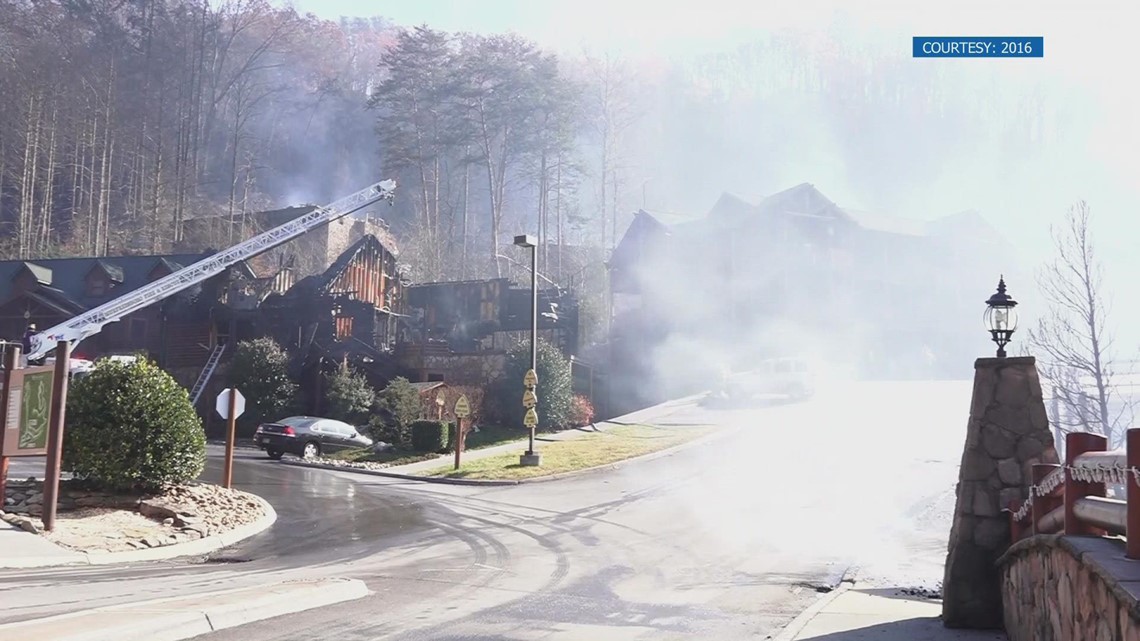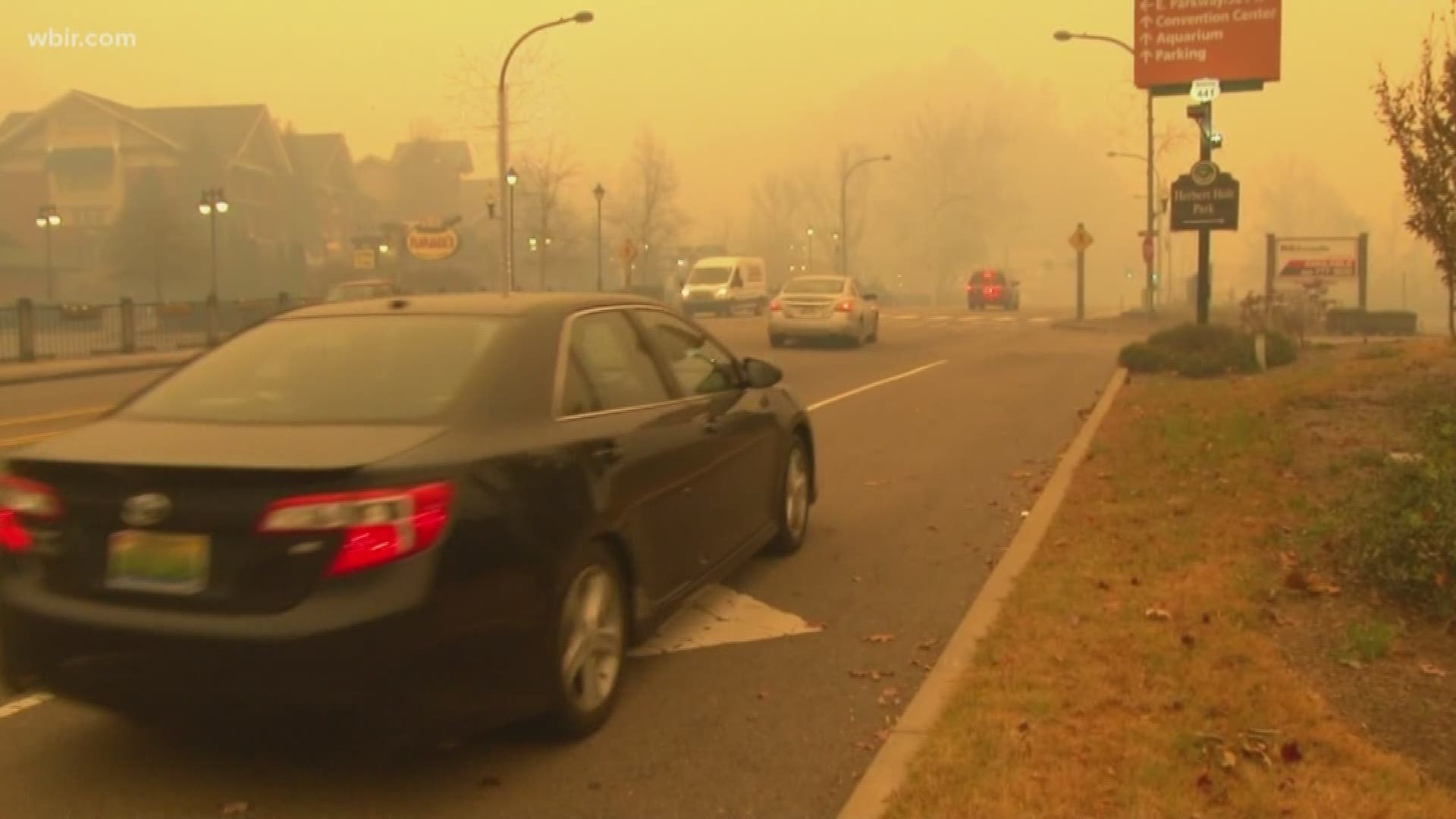Facing a Jan. 25 make-or-break hearing, lawyers for hundreds of victims of the 2016 Sevier County wildfire disaster are laying out their reasons why an appellate court should let them continue lawsuits against the federal government.
Senior U.S. District Court Judge Ronnie Greer last year tossed the litigation, led by Michael B. Reed, on the grounds that lawyers had submitted a defective claim against the government after high winds drove a blaze from Great Smoky Mountains National Park into Gatlinburg on Nov. 28, 2016.
The inferno resulted in the deaths of 14 people including Reed's wife and two young daughters. One of the worst wildfires in Tennessee history, it caused more than $1 billion in damage, affecting more than 2,400 buildings.
The victims blame National Park Service employees for failing to warn the public adequately about the fire's threat.
Attorneys for Reed and other victims, along with lawyers for the United States, are set to appear 9 a.m. Jan. 25 before a panel of the Sixth Circuit, U.S. Court of Appeals in Cincinnati.

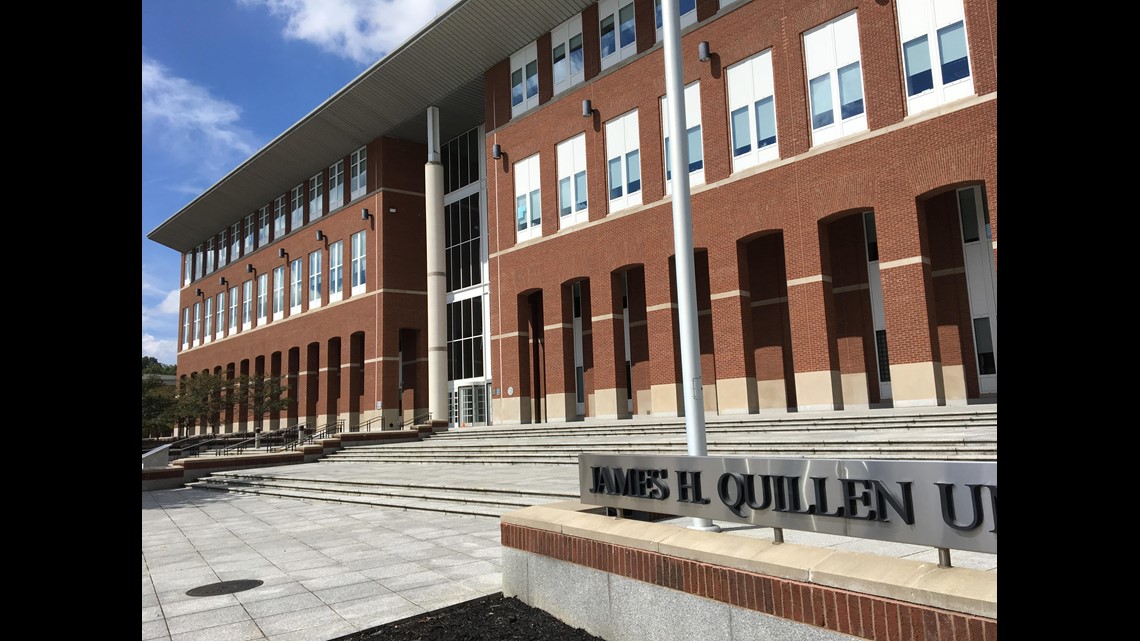
Reed's lawyers will try to convince the panel why Greer was wrong and why they should be able to keep up their lawsuits against the government for damages. The government's lawyers will urge the appellate judges to keep Greer's decision in place.
Months after this month's hearing, the court should return its decision.
Parallel to the federal lawsuit is a complaint that Reed filed in October in Davidson County Circuit Court against his East Tennessee attorneys Sid Gilreath and Gordon Ball and another firm, Cohen Milstein Sellers & Toll of Florida. Reed alleges the lawyers messed up his case, an accusation they reject, costing him a chance to make the government pay for what he and others have lost.
Greer, who presides in Greeneville, tossed the cases because of what amounted to a procedural flaw. The victims started under the weight of a long-held legal assumption: It's tough to sue the federal government and win.
Before filing suit, the victims filed in early 2017 claim notices called an SF-95 form. Many used the same language.
As their basis of claim, they stated on the form: "The U.S. government through its employees failed to follow mandatory regulations to monitor and extinguish a fire in the Great Smoky Mountains National Park, thereby allowing it to spread beyond the park boundaries onto claimants' private property, destroying their property."
In 2018, they then proceeded to sue the government, alleging negligence by National Park Service employees.
By Greer's reading, the language in their SF-95 forms means the victims allege the NPS is at fault for failing to put the fire out while it was still burning in the Smokies, "rather than a failure-to-warn claim." The failure-to-warn claim is a key part of their legal argument in the lawsuits.
"Perhaps anticipating the court's reading of the language, and that it might wonder how a failure to warn claim would have 'allowed (the fire) to spread beyond the park boundaries,' (Reed and the other victims) argue that it is part of their theory that NPS 'should have warned the Gatlinburg Fire Department and local officials who could have helped to fight the fire or control its spread," the judge wrote in his February 2022 dismissal.
But, Greer wrote, "The court is not convinced."
He also noted that some insurance companies that also have filed lawsuits in the case did, in fact, note on their SF-95 forms that NPS employees failed "to provide timely and accurate notice and warning to Park neighbors, local government officials, local fire departments, local residents and visitors about the status of and imminent danger presented by The Chimney Tops 2 Fire."
The insurance company lawsuits are proceeding in federal court in Knoxville.
Reed's attorneys argue Greer split hairs on the definition of words in their SF-95 claim. Congress didn't intend for procedural requirements when suing the government to torpedo a person's chance of being made whole, they said in a brief filed in November ahead of the Jan. 25 appearance in Cincinnati.
"This is such a case where justice demands Plaintiffs be permitted to pursue their failure to warn claims against the Government. Even if Plaintiffs' administrative claims were not sufficient to give minimal notice of their failure to warn claims, the Government is at no disadvantage and the purpose of (the federal claims law) has been satisfied.

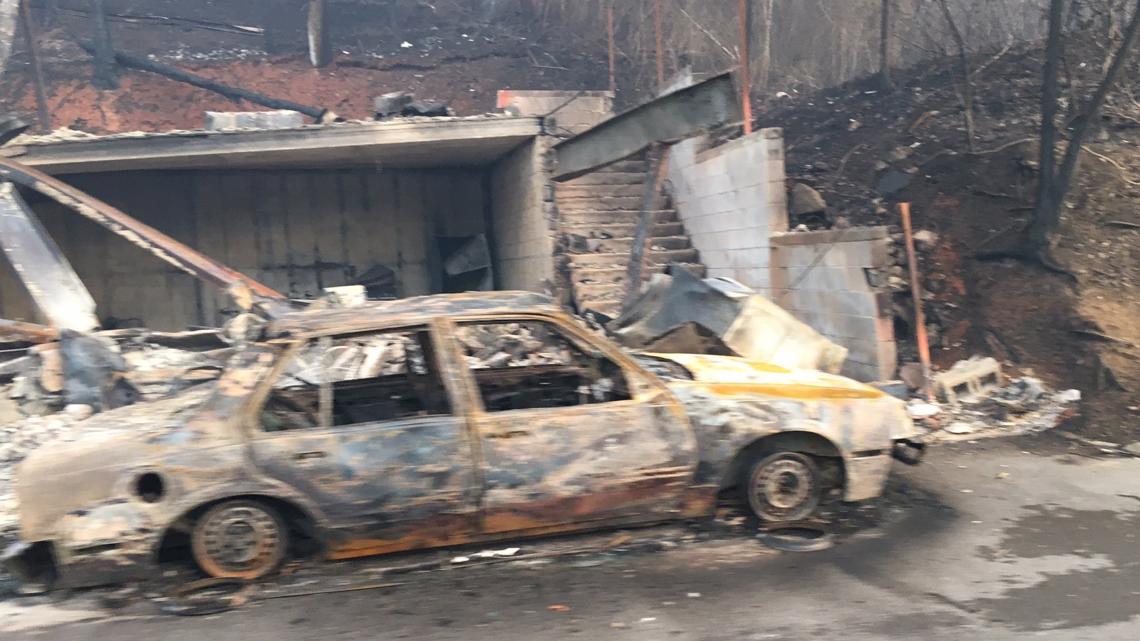
"Not only did the Government's own investigation reveal the problem with its communications to the public and surrounding agencies regarding the dangers posed by the fire, but other claimants specifically alleged the Government negligently failed to warn of this danger."
Greer dismissed the claims of hundreds of fire victims "on a technicality," Reed's attorneys argue. The judge took a "heavy-handed" approach in reviewing the victims' claims, the plaintiffs argue.
They also fault Greer's scrutiny of the dictionary definition of the word "monitor," which they used in their SF-95 claim.
The judge decided the definition of "monitor" didn't fit their intent to say that the NPS had failed to adequately warn Gatlinburg residents.
But they argue their use of the word monitor as a noun fits -- meaning "one that warns or instructs."

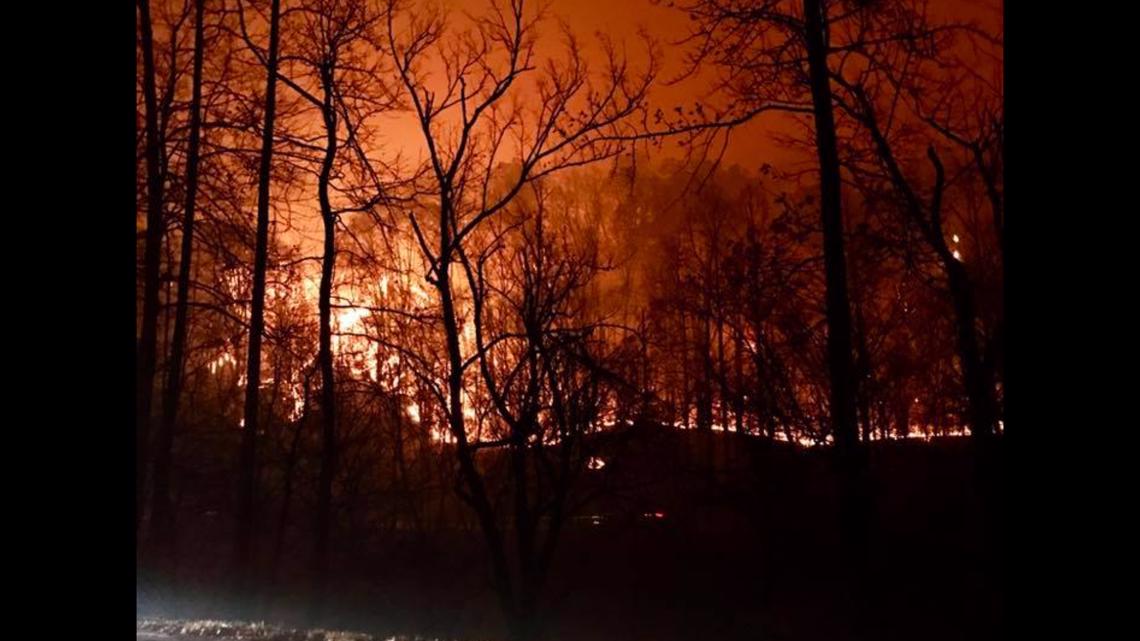
Government lawyers say the victims' lawyers have only themselves to blame for the dismissal. You can't file a claim against a federal agency and then turn around and sue "on the basis of a different set of facts," they argue in a brief filed in October in preparation for this month's hearing.
Reed and his fellow plaintiffs filed claims alleging NPS employees "failed to follow mandatory regulations to monitor and extinguish a fire in the Great Smoky Mountains National Park, thereby allowing it to spread beyond the park boundaries," the government argues.
Echoing the judge, they wrote, "That allegation can be read, at most, as supporting claims that the government's firefighting efforts were negligent under Tennessee law. As the district court recognized, that statement does not allege harms caused by the performance of other functions (ie. tasks aside from how the Park Service 'allowed (the fire) to spread..."
What the plaintiffs submitted as their claim to the Interior Department differs legally from what they ended up arguing in their lawsuit, the government contends.
In filing his malpractice lawsuit against Gilreath, Ball and the Cohen Milstein firm, Reed adopted many of the points offered by the judge and the government as to why the federal complaint for fire damages should be dismissed. They failed to follow the proper standard of care, Reed alleges. They committed what amounts to "legal malpractice," he alleges.
Reed asks that his lawsuit against counsel be stayed until the Sixth Circuit rules from Cincinnati.

